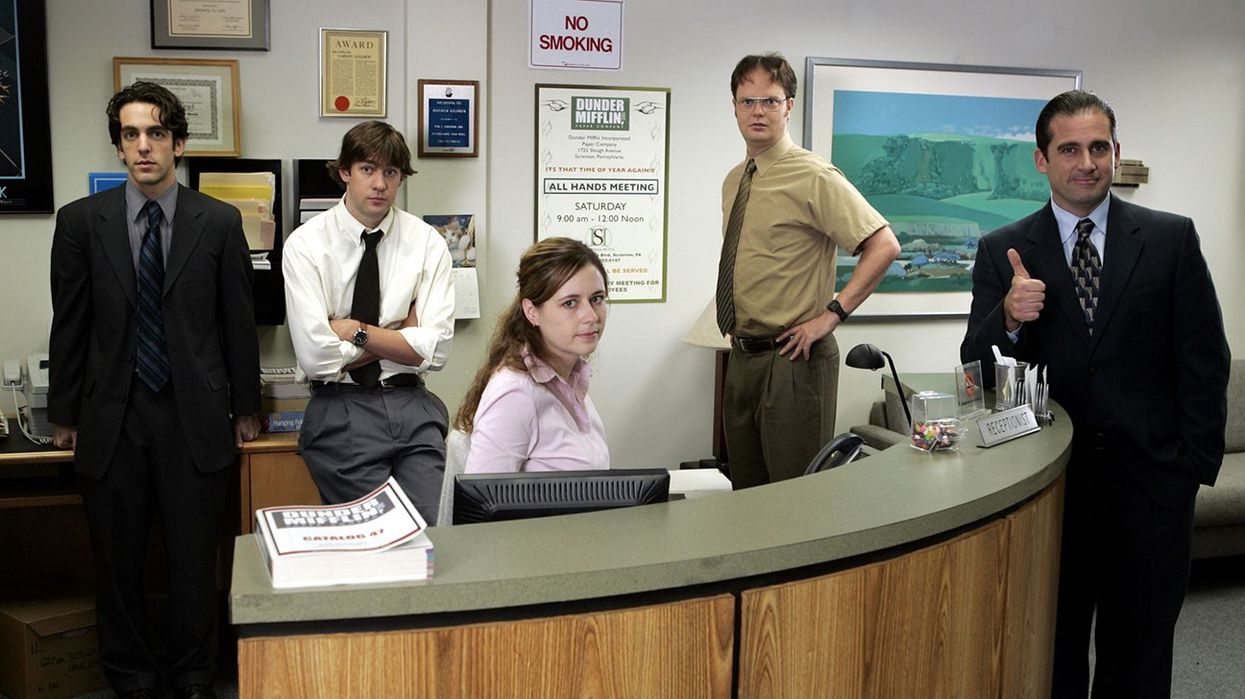10 Lessons 'The Office' Can Teach Us about Screenwriting
"The Office" is one of the most successful shows in recent memory, due in large part to its excellent writing.

Whether you're writing a short film script or a TV pilot, the challenges you have to face are...challenging. You've got character development to think about, you've got story structure to work out, you've got about a trillion other things to rework and reword and reconfigure until you have something that kind of looks like a final draft of a script.
So, yeah...that's a lot of technical stuff. And it's easy to lose sight of the non-technical stuff that is so important to the writing process while taking part in the writing process.
However, in this video, Behind the Curtain puts together a collection of sound bites from writers on The Office to help not only understand how the show came together narratively but to also offer some keen insight on how to stay creative during your own personal writing process.
Check it out below:
Beware the factory writing process
Include your actors in the writing process whenever you can. It's easy to kind of pump out material and send it off, but inviting your actors to participate in the process can be extremely rewarding and beneficial to your project.
Have "blue sky" periods
The writers on The Office would have what they call "blue sky" periods in which all ideas, no matter how outlandish, were welcomed. Let your team explore new, weird, and totally outrageous ideas and narrative possibilities. Everything is in play and nothing is taken off the table.
Add a little glimmer of hope
Caricatures are fun and entertaining, but caricatures with heart, like the incompetent yet over-confident boss that Michael Scott is, might give your stories more potential. The writers of the show are convinced that making Scott someone we care for and root for is what made the show last so long.
Self-awareness
What makes great comedy characters? According to The Office writers, one thing is varying degrees of self-awareness. Having a character that doesn't see their own flaws can be hilarious, but putting them in situations in which they have to face those flaws creates the heart that often makes the comedy work.
Avoid "jokey" jokes
BJ Novak says it perfectly when describing what a "jokey" joke is, it's the "difference between a kid who knows he's cute and a kid who doesn't. The kid who knows he's cute is not cute." So in other words, a joke that tries to be funny is not that funny.
Telling tiny stories
One thing that worked really well with The Office were all of the "tiny stories" that would slowly be told in the margins. They took a lot of time to develop and unfold, which made the payoff so much better.
Actors can bring your writing to life
It's scary to put your precious story babies into the hands of actors that may or may not get what you're trying to do, but on The Office, writers trusted and even, it seems, relied on the actors to breathe life into their words and turn them into some of the most memorable moments in TV.
"Writing is just a guess."
You never know where or how your writing is going to land. Maybe it works on paper but totally falls apart during rehearsals. If it falls flat, don't beat yourself up, because "writing is just a guess."
Love your work enough to fix it
Not everything you write is going to be usable, but respect your craft and your own work enough to be willing to fix it and work with it.
Offering a path through the misery
Something that The Office does that personally made me fall in love with the show is that while it reveals heartache and pain and failure, it also reveals pathways out of those things. Yeah, Michael Scott is annoying, weird, and almost a complete joke professionally until Holly comes into his life and sees the beauty in him. The show doesn't use him solely as the butt of countless jokes, they also use him as a map for those who relate with him...and the X marks the spot where you are understood, loved, and accepted. (Awwwweee!)
What inspires you about the writing in The Office? What's your favorite scene from the show and why do you think it works? Let us know down in the comments.
Source: Behind the Curtain














